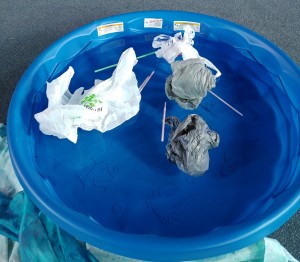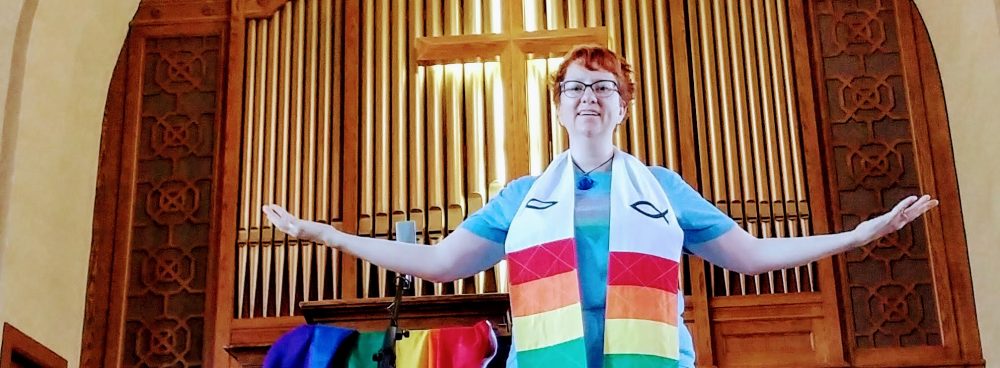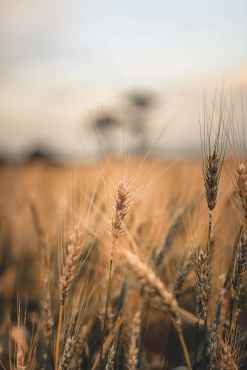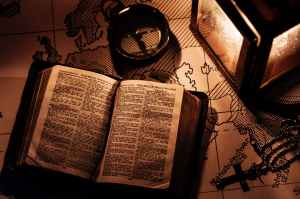This fall in worship planning and leadership, I have been focussing on encouraging interaction between people, creating visual components that speak to the theme.

The community of faith that I serve is blessed with a relationship with a nearby correctional centre that has a work crew looking for things to do. For Ocean Sunday, the work crew was able to climb ladders and suspend fabric and streamers from the ceilings.
 As each person arrived, they were given a paper flower. Thanks to the work crew for all their cutting! These are made by squaring a piece of coloured letter paper and cutting it into quarters. These smaller squares are folded into quarters. The unfolded edges are trimmed as shown.
As each person arrived, they were given a paper flower. Thanks to the work crew for all their cutting! These are made by squaring a piece of coloured letter paper and cutting it into quarters. These smaller squares are folded into quarters. The unfolded edges are trimmed as shown.

When you open the paper it looks like this.
 Then you fold up the petals to create a square bottom and the flowers float.
Then you fold up the petals to create a square bottom and the flowers float.
When Sunday morning arrived a pristine wading pool of water awaited us. The service began with children adding plastic bags and straws to the water.

We read the story of the fishers who fished all night and caught nothing. Jesus came along and told them to put out their nets on the other side and the nets were filled to overflowing. Luke 5:1-11
We read A Garden of Whales maggie s. davis and Illustrations by Jennifer O’Connell. In this story, the whales disappear, are nurtured by children and able to repopulate the oceans.
I used wondering questions to invite the whole congregation to think about these stories.
- I wonder what kind of danger came to the whales?
- I wonder how you plant whale tears?
- I wonder how they made the ocean safe again for the whales?
- I wonder how the whales survived after they grew in the garden?
Reflection:
This passage of scripture holds the tension between the scarcity and abundance of the earth and waters. In Jesus’ time people relied heavily on the fishing for their livelihoods and for their food. They were deeply connected to sea and the life within it. We are much less connected. Our water comes out of a tap and as long as the water continues to flow, we might not notice that there is a problem with the water. I suspect that the folks in Zambia that we heard about in the Minute for Mission are very aware of water, how much they use and the ways in which water can be contaminated. In a similar way, many First Nation reserves recognize the challenges of clean, abundant water.
The destruction of our water sources doesn’t just impact on humans. It destroys other forms of life—like the whales and other sea creatures. The earth needs all its creatures in order to be healthy and thrive.
While we are disconnected from our water sources, we are complicit in the waste and contamination of water. I invite you to take a moment in silence to reflect on our relationship with water.
I invited people to write a prayer for the water and oceans on the flower. When then came up for communion they placed the flowers in the wading pool with the garbage to transform the future of creation. I forgot to take a picture after worship as I was rescuing the flowers so they could be dried and placed on the walls around the sanctuary.





